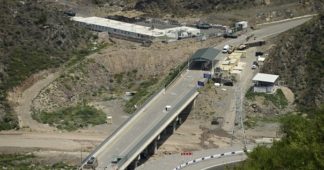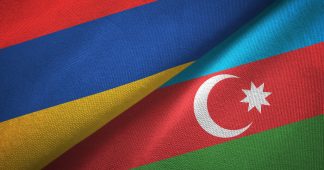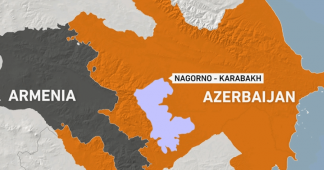By Legal and Policy Director at the University Network for Human Rights
Aug 31, 2023
The war in Ukraine has dominated headlines in Western media since it began. But the world has largely ignored another humanitarian crisis not far away—one that is reaching a boiling point and finally is starting to get a bit of the attention it merits.
Over the past few weeks, two international legal experts, the first UN special advisor on the prevention of genocide and the founding chief prosecutor of the International Criminal Court, issued separate reports warning of the genocidal implications of the humanitarian crisis in Nagorno-Karabakh caused by Azerbaijan’s blockade of the Lachin Corridor, the key access road for the enclave of 120,000 ethnic Armenians.
But for many in the region—like a young survivor who, for security reasons, I will refer to only by his first name of Mels—ethnic cleansing of Armenians in Nagorno-Karabakh and on its border has been ongoing for several years.
Azerbaijani forces kidnapped Mels in Nagorno-Karabakh in December 2020 and for 10 months tortured him with bats and chains, starved him, and forced him to chant “Karabakh is Azerbaijan” and “Glory to the president of Azerbaijan.”
Mels’ grandmother prayed for him to be alive, offering her life to God to bring him home. The Red Cross eventually facilitated this, but the day he returned, 30 pounds lighter and unrecognizable, she died.
Mels is one of the roughly 100 Armenian victims of atrocities that we at the University Network for Human Rights (UNHR) interviewed in Armenia and Nagorno-Karabakh over the past two years.
Western media is just beginning to report on the crisis within Nagorno-Karabakh caused by the blockade of the Lachin Corridor, the only road connecting this Armenian-populated territory within the borders to Azerbaijan to Armenia proper.
The area, which ended up in Azerbaijan due to the vagaries of internal Soviet borders, has operated as a self-governing entity for three decades after the fall of communism. Azerbaijan seized control of much of it in a 2020 war which cost thousands of Armenian lives.
Continue reading at www.newsweek.com
We remind our readers that publication of articles on our site does not mean that we agree with what is written. Our policy is to publish anything which we consider of interest, so as to assist our readers in forming their opinions. Sometimes we even publish articles with which we totally disagree, since we believe it is important for our readers to be informed on as wide a spectrum of views as possible.










